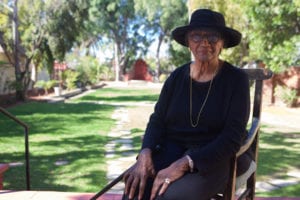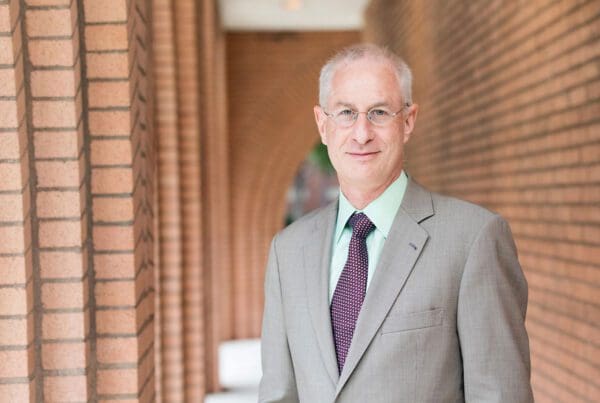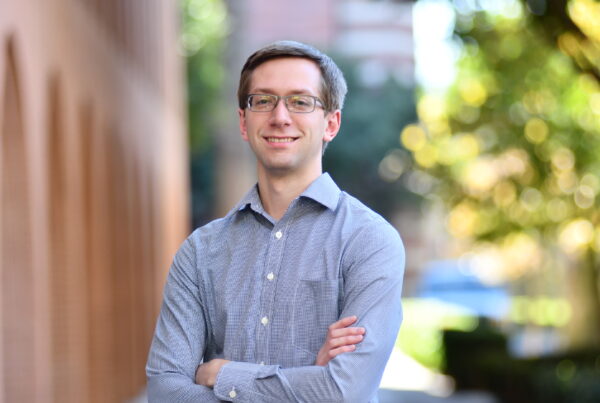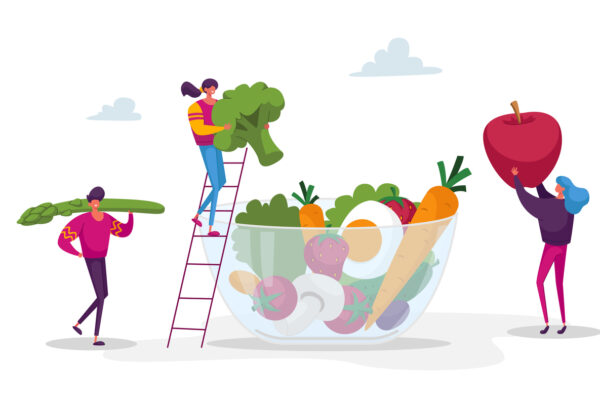
First AME caregiver support group founder Bobbe Akalonu
It’s 11:30 a.m. on a Tuesday morning, and women are filtering into First African Methodist Episcopal Church of Los Angeles’ Allen House. They sit around a large, wooden table and exchange greetings, catching up on family matters and recent news. For many, this is precious time, as it’s among the only moments they get to themselves. Though their circumstances may differ, they share a common journey—that of caregiver for a friend or family member, a commitment that can be equal parts rewarding and frustrating.
At the head of the table sits Bobbe Akalonu, 83, facilitator and founder of this twice-monthly Family Caregiver Support Group that works in collaboration with the USC Family Caregiver Support Center (FCSC). “They come through that door and say, ‘I can exhale,’” Akalonu says.
Akalonu is well versed in the challenges of caregiving. After her father and husband passed away, she moved in with her mother, who suffered from dementia following a vascular stroke. Ill prepared for the role, relief came during a trip to a senior center where she noticed literature about the USC FCSC. The center provides services such as support groups, education, training, consultations, and long-term planning to caregivers of anyone with brain-impairing or long-term health conditions.
“Our focus is on the family caregiver,” says Donna Benton, research associate professor at the USC Leonard Davis School of Gerontology and director of the USC FCSC. “We help them understand how to manage their time and stress levels so they can be there in the long run to care for their relatives or friends.”
Akalonu took advantage of anything she thought would help—from seminars to workshops and support groups. “It was 100 percent of my education on caregiving and changed my perspective on responsibility,” she says.
In 2002, Akalonu’s mother passed away, but instead of walking away from the world of caregiving, she decided to share her vast knowledge with others. “I knew there was a need in our community,” she says. Together with Benton, Akalonu drafted a proposal for a caregiver support group in conjunction with the FCSC to take place at First AME Church of Los Angeles, the city’s oldest African American-founded church, presented it to Senior Minister J. Edgar Boyd, and was met with his full support.
“We are indebted to Sister Bobbe and her work, her dedication, and her consistent commitment for what she has been doing out of her heart for a long time, and I think if you listen to her long enough, you will become as dedicated as she is,” Boyd says.
“We needed a trusted gatekeeper for the First AME community, and that was Bobbe,” Benton adds, who advised the church’s steering committee on how to discuss caregiving issues, how to identify caregivers within the church, and how to refer them back to FCSC for additional resources and expertise.
In January 2015, the Family Caregiver Support Group at the Allen House held its first gathering. Over the past three years, it has assisted approximately 75 families by offering an opportunity to find support, learn from common experiences, discuss solutions to shared issues, and learn more about resources.
“One of the biggest challenges of being a caregiver is balancing personal needs with full-time responsibilities,” Benton says. “Many are working caregivers. We find that 40 to 50 percent of family caregivers exhibit symptoms of major depression.”
Group member Erliene L. Kelley cared for her mother, who had dementia, and says it was a full-time job. “I took her to all of her appointments—doctor, dental, foot doctor, everything,” she says. “I neglected myself by not going to my mammogram appointments and ended up with breast cancer.” Though her mother passed last year, Kelley still attends the meetings. “It’s a group of people I love being with. If I’m able to help them, I will.”
Nannette Gueye took care of her mother and is now caring for a 99-year-old veteran. She says the meetings provide a wealth of information, whether through printed material or conversation. “Sometimes it’s just a blessing to share my experience and hear someone else’s testimony,” she says.
In addition to helping the community, the support group often assists caregiving researchers. “Many times when we are developing new programs, we will invite the members to participate in focus groups for researchers at USC,” Benton says. “They’re asked about caregiving and stress, legal issues, or nutrition.”
Over the past hour and a half, the members of the Family Caregiver Support Group have shared, vented, commiserated, and even shed a few tears. This is their safe space where they can always find love and support. As the meeting comes to a close and the women gather their belongings and say their goodbyes, you can hear one of them utter a single phrase: “This group is priceless.”
– Michelle McCarthy
The Family Caregiver Support Group meets every second and fourth Tuesday of the month from 11:30 am to 1:00 pm at First AME Church of Los Angeles’ Allen House. Attendance is free and open to everyone. For more information, contact the USC Family Caregiver Support Center at (855) 872-6060.





